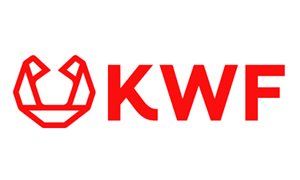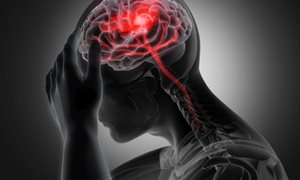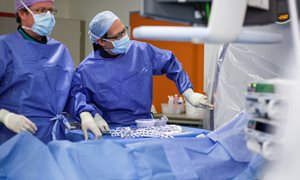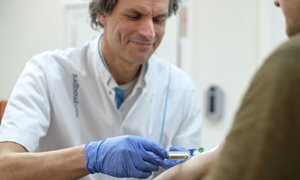
Ioannis Sechopoulos, researcher at the Department of Imaging of the Radboudumc, receives a Vici grant of 1.5 million euros. He will conduct research into improving tomosynthesis, an X-ray examination that radiologists use to detect breast cancer. Improvement of the technique should lead to less unnecessary follow-up examinations during population screening, and clearer analysis of tumours before and after treatment.
The national population screening for breast cancer has been running in the Netherlands since 1990. Women between 50-75 years of age undergo a mammogram every two years, a two-dimensional X-ray of the breast. If there is an abnormality, the follow-up examination may consist of a so-called tomosynthesis, a three-dimensional X-ray of the breast. More can be seen on this scan as compared to the mammogram, but the examination still only provides information about the anatomy, i.e. where, for example, a suspected lesion is located.
Unnecessary worries
‘In this Vici project I will work with my team on improvement of the technique of tomosynthesis, so that we also get functional information from the examination,' says Ioannis Sechopoulos, 'For example: what kind of tissue does the nodule consist of? If it is solid tissue, then we need to take a biopsy and examine it further. But if we can see from the scan that it is a cyst, no further examination is required. At the moment, too many women still have to return for follow-up examinations, even though it turns out that there is no malignant tissue. This additional examination costs money and makes women unnecessarily anxious.'
Besides the high number of women who get a follow-up examination that later turns out to be a false alarm, the quality of the current screening is not high enough: still 30% of women with breast cancer die from the disease and that leads to 600,000 deaths worldwide every year. Also, once breast cancer is found, there is a need for improved diagnostics, with a more comprehensive analysis of the tumour before starting treatment, and an improved follow-up during treatment.
Two rays at once
Sechopoulos is improving the tomosynthesis technique with a new way of measuring, using two X-ray energies at the same time, without increasing harmful radiation. He also improves image analysis by using computers that can analyse tissue very accurately through the technique of deep learning. This way, a radiologist together with the computer can better determine whether a lesion is a tumour or a cyst. In addition, Sechopoulos is developing the use of a contrast agent, leading to better follow-up of the tumour during a treatment and allowing a more person-centred approach.
'My goal is the development of an affordable new standard in functional breast imaging, which is widely applicable worldwide and leads to improved diagnostics and treatment in breast cancer', Sechopoulos explains. In addition to the Vici grant from NWO, Siemens, ScreenPoint Medical (a spin-off of the Radboudumc) and the Radboudumc are also investing in the research project, bringing the total budget to 1.8 million euros.
About the Vici grant
Vici is one of the largest personal scientific grants in the Netherlands and is aimed at advanced researchers. They each receive 1.5 million euros from the Netherlands Organisation for Scientific Research (NWO). With this Vici grant they can develop an innovative line of research in the field of medical research and care innovation and build their own research group for the next five years.
-
Want to know more about these subjects? Click on the buttons below for more news.
More information
Annemarie Eek

wetenschapsvoorlichter
Related news items
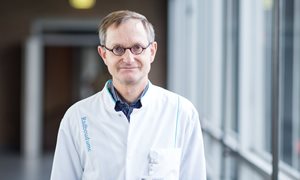
1.4 million euro to reduce hospital admissions due to medication
7 January 2022 A team of sixteen Dutch hospitals received a grant of 1.4 million euros from ZonMw. They will investigate whether they can reduce medication related hospital readmissions. go to page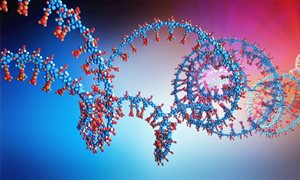
A single comprehensive DNA test of a tumor is usually sufficient
25 August 2021 A one-time measurement of the entire tumor DNA is almost always sufficient to find all DNA errors that are important for treatment. go to page